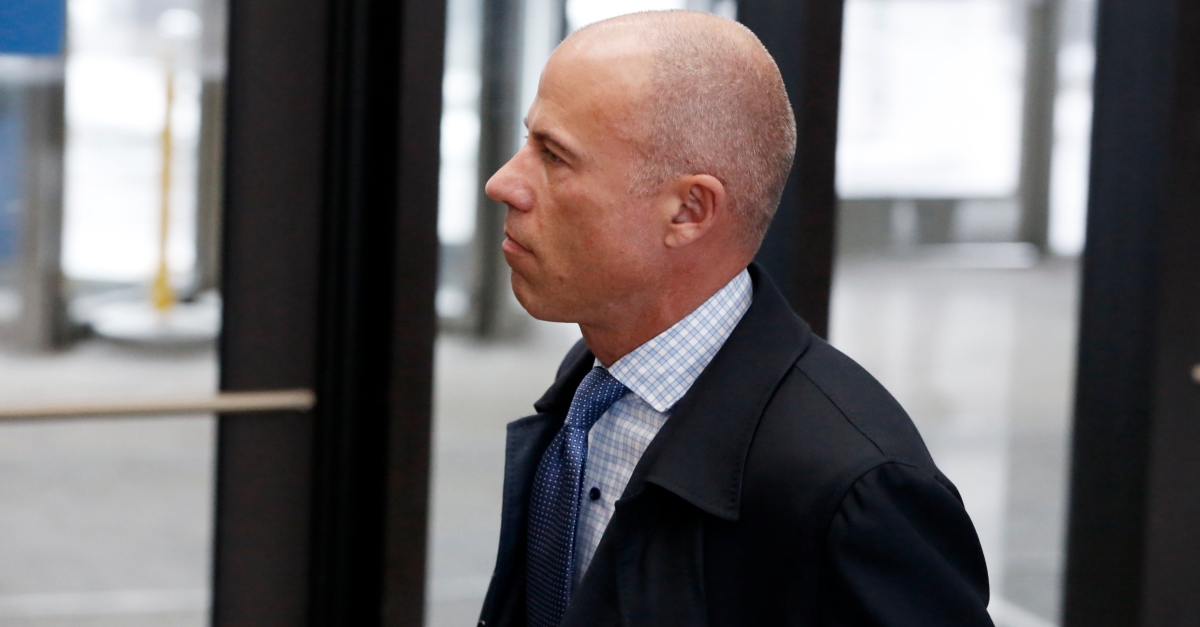
A letter from the warden of the scandal-plagued New York City prison where Jeffrey Epstein was allowed to die penned a letter to the judge overseeing Michael Avenatti’s case on Thursday. The correspondence contains a mysterious defense of why the celebrity attorney is being isolated from other prisoners—the official reasoning is entirely hidden behind several lines of redactions.
Authored by Metropolitan Correctional Center (MCC) Warden Marti Licon-Vitale, the letter was filed in response to a court order demanding the prison’s higher-ups account for why Avenatti was being holed up in solitary.
“MCC NY has broad discretion to determine appropriate housing requirements for pre-trial inmates,” the letter sent to U.S. District Judge Paul G. Gardephe begins. “My executive staff and I reviewed the circumstances regarding Mr. Avenatti’s federal detention, including any and all information about him in order to determine an appropriate place for him to be housed.”
The warden’s letter then launches into a boilerplate explanation for why the celebrity attorney is being kept in solitary confinement and some of what that form of typically punitive imprisonment entails.
“Mr. Avenatti is currently housed in the Special Housing Unit in Administrative Detention status,” Licon-Vitale continues. “Administrative Detention removes an inmate from the general population when necessary to ensure the safety, security and orderly operation of the institution.”
The warden’s letter then attempts to explain why:
We have serious concerns for Mr. Avenatti’s safety, should he be placed in a general population housing unit. [REDACTED] Keeping Mr. Avenatti in the Special Housing Unit allows MCC NY staff to maintain closer supervision and better ensure his safety. While Mr. Avenatti is housed at MCC NY, our staff will continue to his housing assignment to determine suitability for general population.
In an accompanying letter sent to Gardephe, federal prosecutors passed along the warden’s decision to keep Avenatti away from other prisoners in the infamous Manhattan lockup—describing the length of and explaining away the redactions as necessary government censorship under the circumstances.
“Two sentences in the version [of the warden’s letter] filed on [the semi-public federal court document filing system] are redacted at the request of the MCC, because they set forth sensitive and non-public information,” U.S. Attorney Geoffrey Berman wrote.
The issue was raised after the defendant’s attorneys complained in a court filing that they were unable to access their client in order to effectively prepare Avenatti’s defense against various financial crimes charges including fraud, embezzlement and extortion.
That Monday letter sent by Scott Srebnick noted that Avenatti “has been locked down for 24 hours a day, in solitary confinement, except for attorney visits and two medical exams,” and alleged that such restrictive conditions were “truly hampering our ability to prepare for trial.”
“He is in a cell reportedly once occupied by El Chapo, on a floor that houses individuals charged with terrorism offenses,” the defense filing noted. “The temperature in his cell feels like it is in the mid-40s. He is forced to sleep with three blankets. Not surprisingly, he has been having great difficulty functioning.”
Solitary confinement is a highly controversial form of confinement and is usually exacted on a prisoner as punishment for bad behavior. Criminal justice reform advocates have long pushed for a ban on its use.
In 2011, the United Nations determined that solitary confinement was a form of torture and advised that the practice be phased out.
[image via Nuccio DiNuzzo_Getty Images]